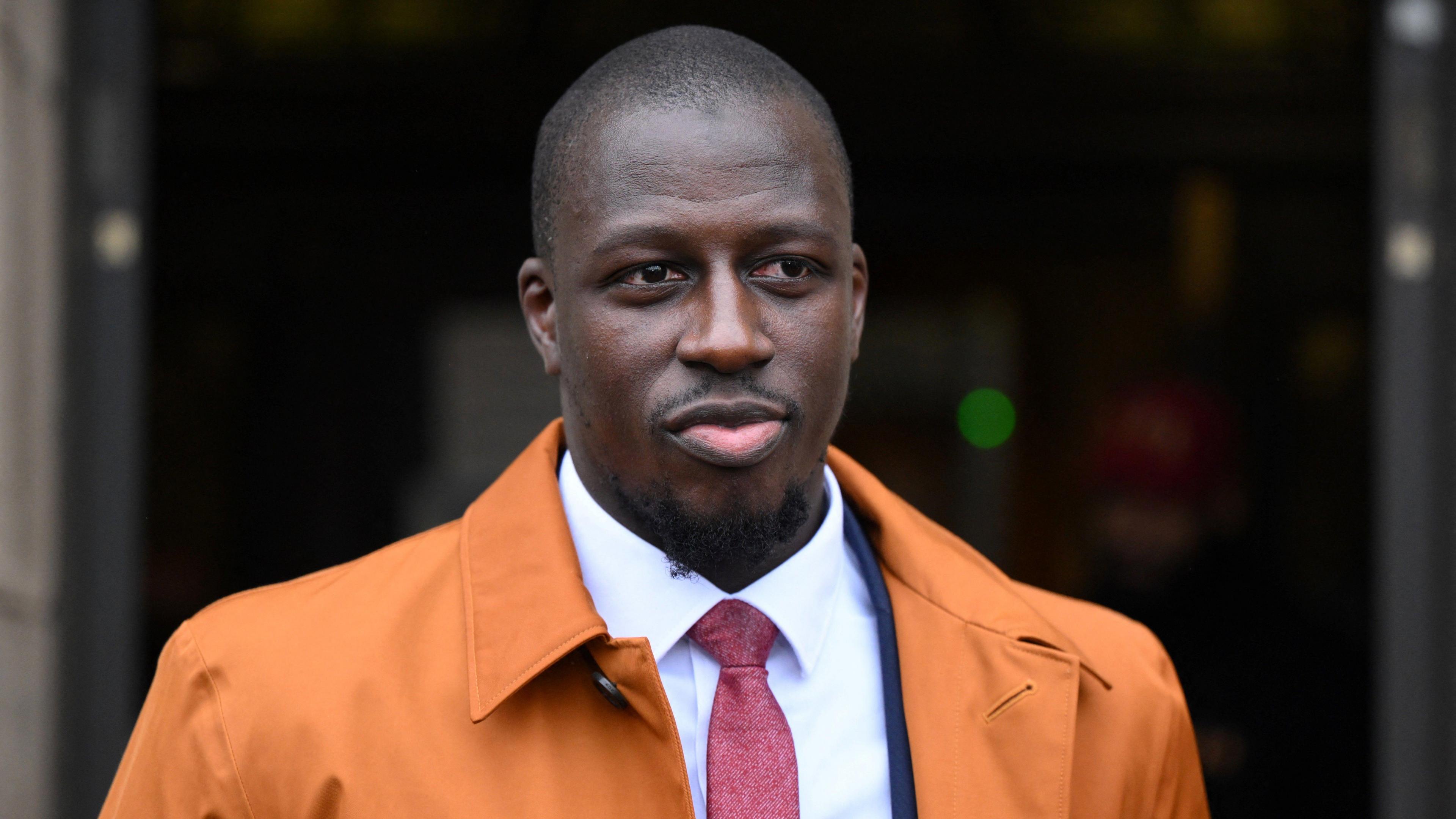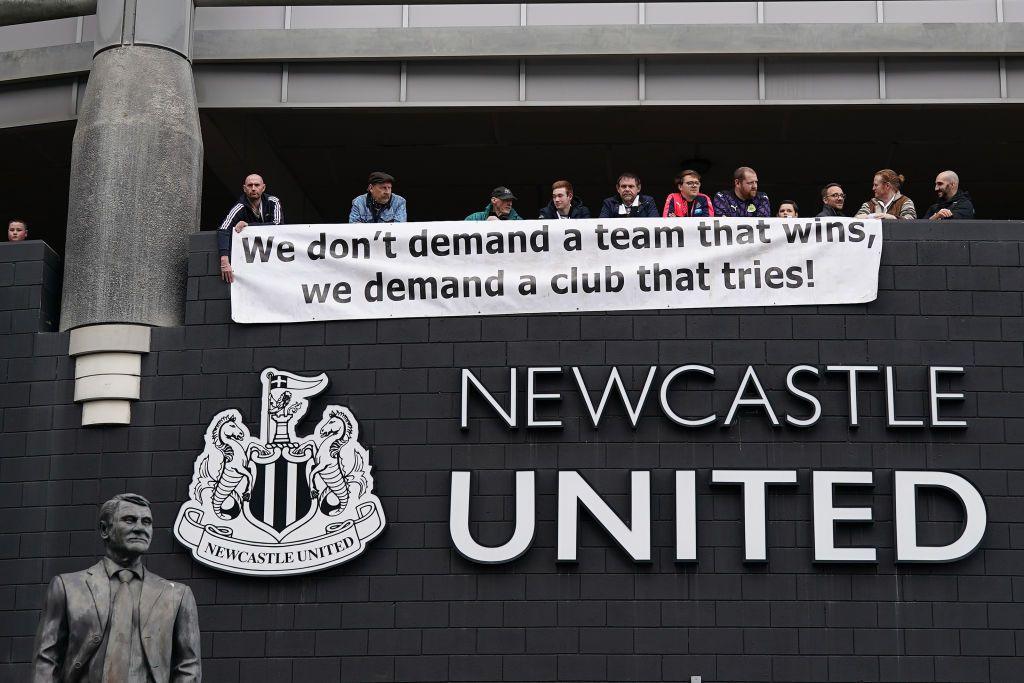Why 'The Godfather' of PSR wants clubs to spend more money

Nick de Marco KC represented former Brentford player Ivan Toney when he was charged by the FA for breaking its betting rules
- Published
Nick de Marco has never scored a Premier League goal. He has never saved a shot or claimed an assist. He has never managed in the competition.
Nevertheless, De Marco KC is one of the most important figures in the current legal soap opera of English football. If you have a problem, you want 'The Godfather' of football finance law on your side.
His most recent success was last month on behalf of former Manchester City defender Benjamin Mendy in his £11m claim for unpaid wages from his old club.
But it is De Marco's work in the complex area of Profit and Sustainability rules (PSR) - also referred to as Financial Fair Play (FFP) - that has led to him being christened 'The Godfather' by his own chambers, Blackstone.
It was De Marco who led Leicester's defence when they were charged by the Premier League. Much to the league's disappointment, an independent panel decided it had no jurisdiction to hold the case - sparing the Foxes a potential points deduction.
In the FFP sphere alone, he has also acted for Nottingham Forest, Sheffield Wednesday, Derby, Bournemouth and Queens Park Rangers, the club he has supported since he was a boy.
Overall, he estimates he has worked for more than half of the Premier League's clubs in various forms. De Marco says more than half his cases never reach the public domain.
"I don't do any of the fun, interesting, really difficult things - but football has changed a lot," he told BBC Sport.
"When I started in sports law it was almost a hobby. You would either be doing it pro-bono - for free - or because you were interested in it, which is why I did it, because I found it fascinating.
"Now there is much more work and much higher stakes and I am very lucky to have found myself in the middle of it. Legal disputes have become, for good or bad, so important now, often for the survival of clubs."
In this interview with BBC Sport, De Marco discusses:
The "hostility" between Manchester City and the Premier League on the 115 charges
Changing the rules to allow clubs to spend more
Making financial breach cases open to the media
The risk of the Premier League writing its own rules
Why he backs an independent regulator
'Manchester City 115 charges case should be public'
Either because they are subject to appeal or because of simple confidentiality issues, De Marco is not able to go into detail about many of the cases he has worked on.
Those include former Crystal Palace goalkeeper Wayne Hennessey being charged with making a Nazi salute on a club night out in 2019. The case was eventually found not proven.
But he does have strong opinions about how sports law operates.
The Mendy case was unusual because, as it was an employment tribunal, it was heard in public.
Most cases are not, including Manchester City's battle with the Premier League over their alleged 115 breaches of financial rules.
De Marco feels that is wrong and can lead to confusion.
"In the past, everything was behind closed doors," he said. "Decisions were made with no proper transparency at all, with no due process.
"It has gradually moved on as commercialisation, more money and more professionalism has come in.
"But a lot of sports regulators are very scared of losing control. They think the best way of having control is to do things secretly. My view is that doesn't work in the long run. It makes people suspicious of you.
"I don't know what is going on in the Manchester City case but let's imagine a finding comes out later saying they preferred the evidence of one witness to another or that they thought someone was lying to them or someone said an arbitrator was biased.
"We have no way of understanding that or testing it. It is much better to be open and transparent."

Former Manchester City player Benjamin Mendy is one of De Marco's recent clients
Leicester 'loophole' & Premier League 'rushing' rule changes
After their immediate promotion back from the Championship, Leicester went into the current campaign under threat of a hefty points deduction as they had been charged by the Premier League in March with exceeding the permitted £105m three-year loss limit.
The case was thrown out in September, with the Premier League saying the independent panel's interpretation "failed to take into account the purpose of the rules".
Many observers felt the 57-year-old had exploited a loophole. It is a theory he rejects.
"That wasn't a loophole," he said. "It is a very simple point. The Premier League should never have brought the case in the first place."
Which brings us to the revised rules around Associated Party Transactions, agreed by a vote at the Premier League meeting on 22 November despite strong opposition from Manchester City and Aston Villa.
Speaking before the vote took place, De Marco said he had some sympathy with City's assertion that rushing through legislation was a mistake.
"People shouldn't rush to change rules," he said. "I have seen this in the Football League and Premier League a lot.
"Two or three years down the line, you get the Premier League furious Leicester have won their case, saying it was because of a loophole in the rules. But they were the rules the Premier League wrote."
Breakaway leagues are inevitable in football - Sports lawyer De Marco
Regulator 'can stop football's self-interest wars'
On Manchester City's 115 charges, De Marco says it is "difficult" to see a "way out" from the "hostility between the Premier League and Manchester City", which he says has "become so entrenched".
"It is a shame it has led to this. Hopefully football will pull itself together," he added.
"There is a fear from many different sides, I think, that the extent of the civil war going on in the Premier League really needs to finish soon.
"If all the clubs start suing each other and they are all falling out and not agreeing with any rules because they are all looking after their own self-interest, the product itself will suffer."
De Marco is a "convert" to the idea of an independent regulator coming in to "stop the wars" around the funding pyramid in English football.
"It seems to me that when the league makes its own rules, its clubs vote in their own short-term self-interest," he said.
"Most people would welcome the idea of greater transparency and greater fan involvement."
De Marco gives "credit" to the success of the Premier League but adds that it should "listen to its critics a bit more" around engaging with a new regulator.
'Owners should be allowed to invest more money'

A Saudi Arabian-backed £305m takeover of Newcastle United was approved in October 2021
Strangely, for someone who has acted in so many high-profile PSR cases, De Marco is not a fan of the rules.
Rather than the current situation, which is poised to change anyway when the planned 'anchoring' around the turnover of the lowest-ranked clubs comes in next season, De Marco feels there should be a loose upper spending limit to encourage competition and investment.
And he does not feel the advent of so-called state-run clubs necessarily means everyone should cut back.
"There is nothing unsustainable about how Manchester City, Newcastle or other [similarly owned] clubs are run. They are very sustainable," De Marco said.
"The new point people are making is about competition. I understand there may need to be some upper caps. But let's not get diverted into this argument about whether it is state-owned or not, which, of course, there are legal points about.
"Imagine if Elon Musk bought a club in the Premier League. He must have a personal wealth of more than many states in the world now.
"You see how he has taken over Twitter, now X, and completely changed it. He is very powerful. Would it be any different if it was a private individual or a state? I think the focus on state is a bit of a mistake.
"I think owners should be allowed to invest a bit more money if they want to but they have to guarantee it so they can't just pull the plug."
De Marco feels the money is now so big in top-level football that an increase in legal cases is bound to happen because there is so much to lose.
And, having seen the collapse of the European Super League within 48 hours in 2021, he feels another breakaway competition will eventually be launched.
"The European Super League blueprint just did not work," he said. "But something else will come along at the right moment and it may work," he said.
"Don't forget, the Premier League was a breakaway league. It was opposed at the time and seen as a few greedy clubs at the top ruining English football.
"But it is actually, despite all the criticisms people have of it, been the most successful football league in the world and brought more money into English football than anything else.
"Breakaway leagues aren't necessarily a bad thing and they are inevitable as more money comes in and more competitions globalise."
Related topics
- Published16 August
